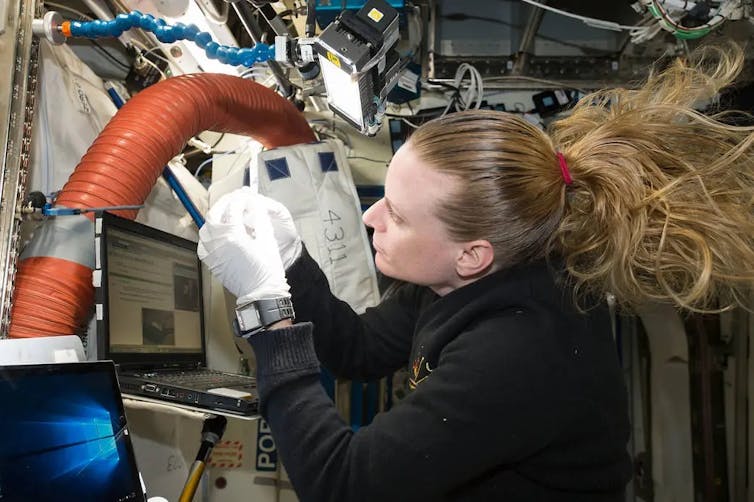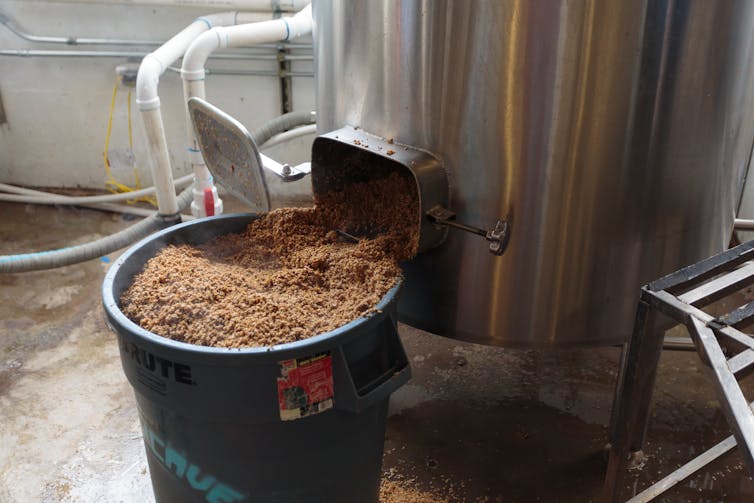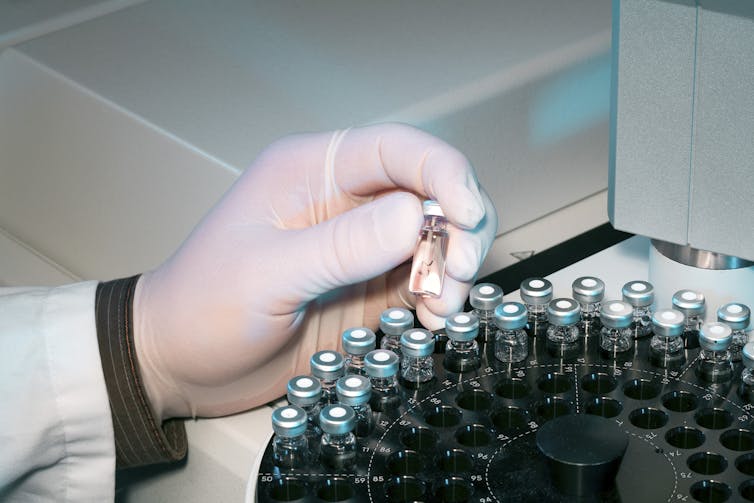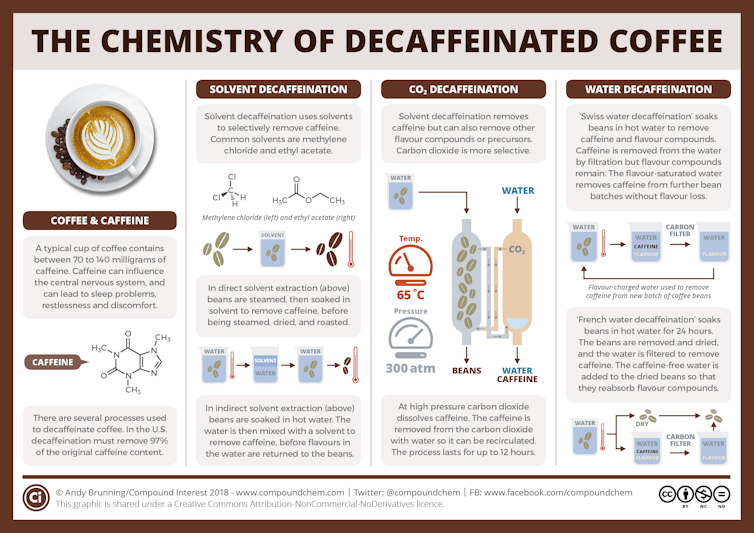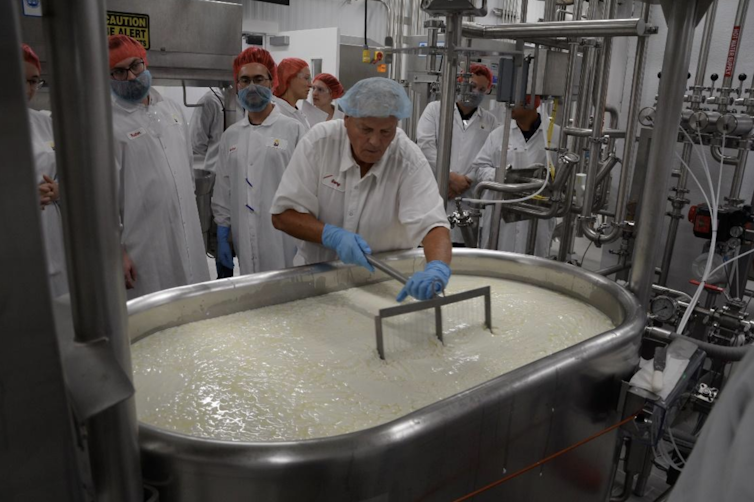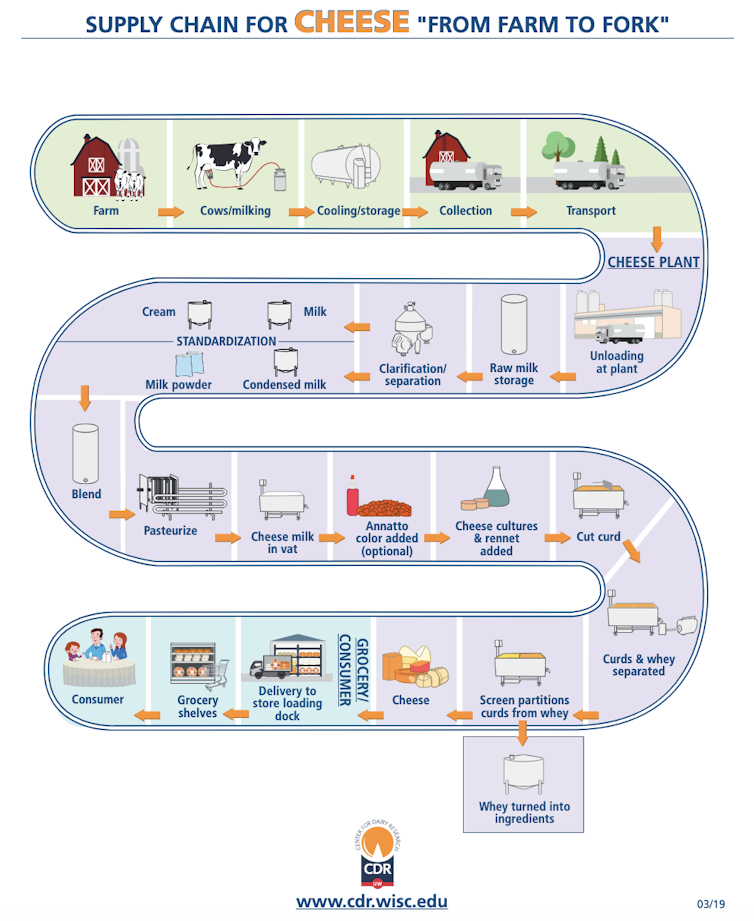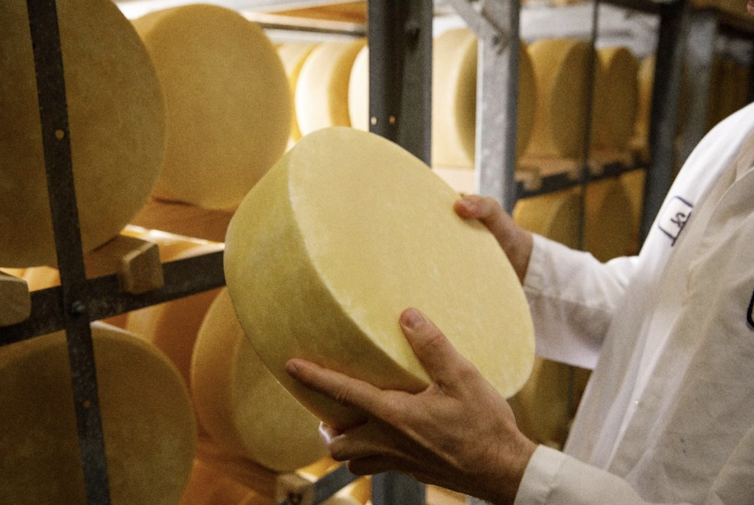What lunar caves tell us about the shared origins of the Earth and the Moon
Using radar, a Nasa spacecraft, Lunar Reconnaissance Orbiter (LRO), has confirmed the existence of caves beneath the lunar surface. Here’s why such geological features will be key for establishing a base on the Moon, and what they can tell us about Earth and our Moon’s shared cosmological origins.
Lunar orbiting satellites first spotted pits on the Moon’s surface decades ago. Many of these were thought to be openings that connected to substantial underground tunnels that form through volcanic processes, but only now has this been confirmed through the analysis of radar data.
Some of the tunnels thought to exist on the Moon are expected to be lava tubes, which are also found on Earth. When molten lava flows out of the ground, the lava stream eventually cools and hardens into a crust. The lava inside is still molten, and continues to flow. Once the lava has flowed away, it leaves an empty tunnel called a lava tube. These formation processes are thought to be be very similar on the Earth and the Moon.
The data used in the latest study was collected in 2010 by LRO but only recently analysed using state of the art signal processing techniques. Radar (electromagnetic waves of 12.6cm wavelength) fired at acute angles towards these lunar pits, partially illuminated the shadowed subterranean areas to generate measurable radar echo signals.
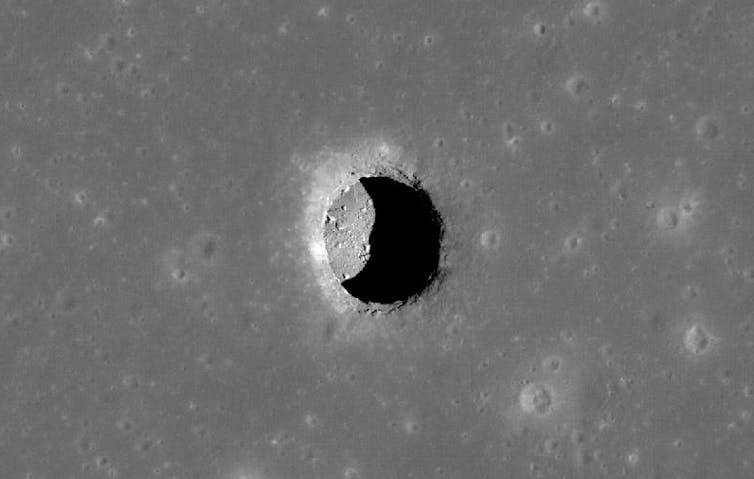
The pit in Mare Tranquillitatis leads to an underground cave system. Nasa
The timing and amplitude of the reflected signals allowed researchers to compare with simulations and build up a picture of the underground terrain. Data indicate that the largest “Mare Tranquillitatis” pit leads to a cave 80 metres long and 45 metres wide: an area equivalent to around half a football pitch.
It is likely that the lunar surface is home to hundreds of such caves. It is widely thought that around 4.5 billion years ago, a young Earth violently collided with a Mars-sized proto-planet, splitting our youthful planet into the Earth and Moon system we have today.
After this high energy impact, the Moon may have been molten. It is therefore hardly surprising that caves of seemingly volcanic origin, bearing striking similarities with volcanic caves here on Earth, are present on the Moon. However, we don’t need to worry about astronauts dealing with the dangers of a volcanic eruption; volcanic activity on the Moon petered out entirely around 50 million years ago.
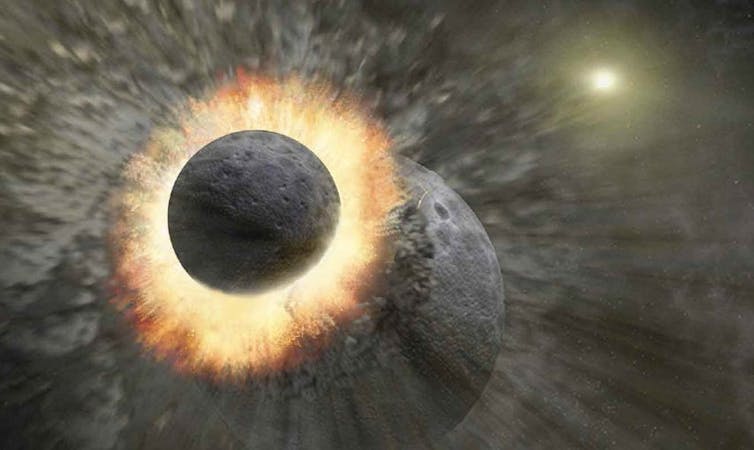
The Moon is thought to have formed when a Mars-sized object slammed into Earth. NASA/JPL-CALTECH/T. PYLE.
A home from home?
On Earth, we live in an unusually fortuitous environment, which protects us from threats from outer space. For example, Jupiter, the largest planet in our solar system, is well placed to gravitationally drag asteroids away from Earth. This minimises the frequency of cataclysmic asteroid collisions with our planet – such as the one that spelled the end of the dinosaurs.
One less obvious threat to life on Earth is ionizing radiation. The whole solar system is constantly bathed in a soup of charged particles called galactic cosmic rays, which are accelerated to huge speeds by distant supernova explosions, sending them on a collision course with Earth.
In addition, periodic events called coronal mass ejections from our own sun fling highly energetic particles in our direction in much larger numbers, but on a less frequent basis.
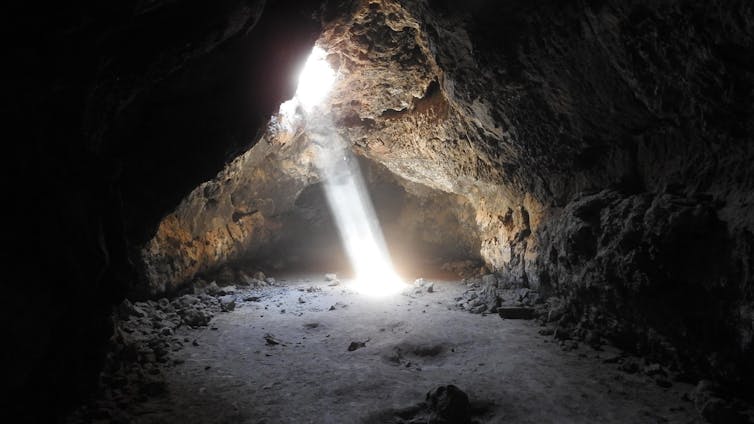
Lava tubes like this one may also exist on the Moon. NPS / B Michel
The Earth’s magnetic field protects us from this radiation to a large degree, by funneling the charged particles towards the north and south poles. This is the origin of aurora borealis and australis that light up the night sky at high latitudes. The Earth’s thick atmosphere also protects us, but we still get some exposure: a return transatlantic flight, where we are higher up in the atmosphere, gives the traveller a dose of radiation equivalent to five X-ray scans.
Now spare a thought for our Moon, which possesses neither an atmosphere nor notable magnetic field. Far from being a “sea of tranquility” (the name of the site of the first human landing on the Moon in 1969) the lunar surface is constantly bombarded by high energy radiation.
This poses a serious challenge for populating a Moon base with humans. Astronauts bouncing about on the lunar surface will soak up about 10 times more radiation than experienced on a transatlantic flight and about 200 times what we get on Earth’s surface.
Although our bodies can deal with the generally harmless low levels of background radiation we experience on Earth, exposure to high levels of ionising radiation can have serious health implications. When ionising radiation interacts with the body, it can ionise the atoms contained within cells, stripping them of electrons. This damage can sometimes prevent DNA from replicating properly, and in extreme cases, can cause cell death.
For these reasons, any Moon base must provide adequate radiation shielding to protect its inhabitants. However, radiation shielding is best provided by dense material, which is expensive to transport to the Moon from Earth.
Hence, naturally shielded areas, like the recently discovered caves, are being earmarked as possible locations for human habitation on the Moon. These caves would afford its residents a whopping 130 to 170 meters of solid rock shielding – enough to halt even the highest energy radiation.![]()
Robin Smith, Senior Lecturer in Physics, Sheffield Hallam University
This article is republished from The Conversation under a Creative Commons license. Read the original article.



